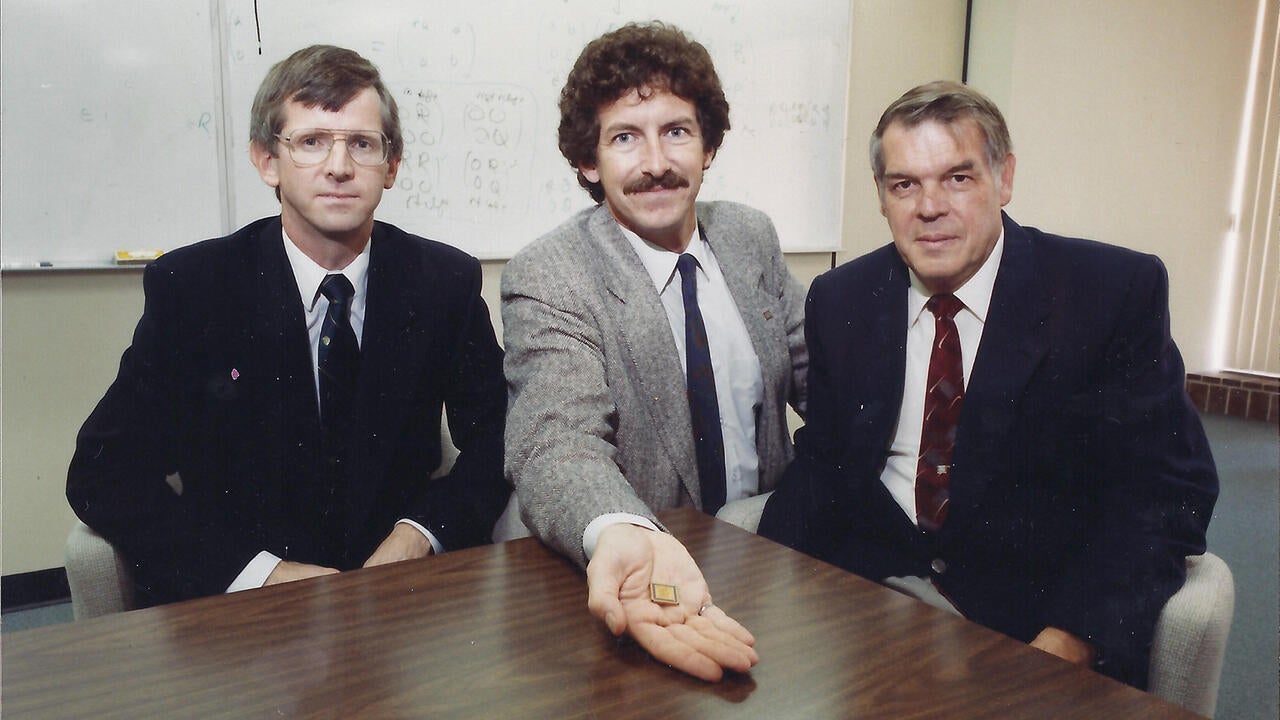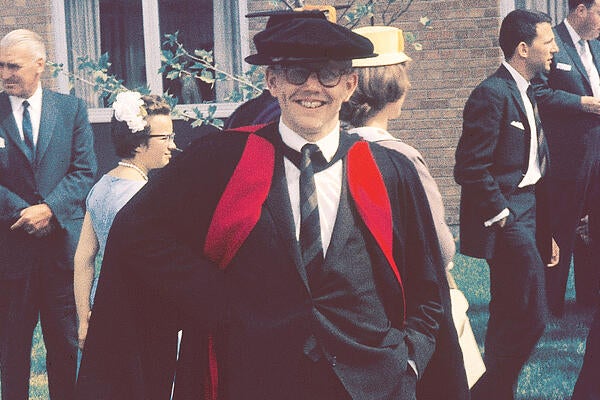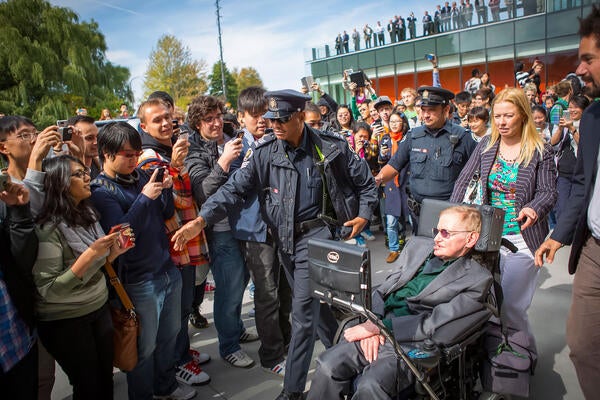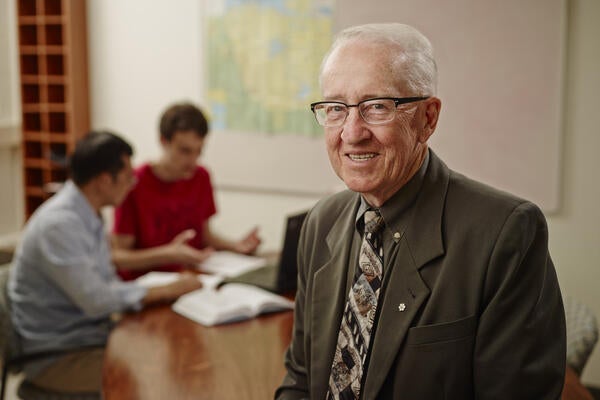
The profound impact of a researcher
Remembering Scott Vanstone and tracing his connections, influence and career

Remembering Scott Vanstone and tracing his connections, influence and career
By Jodi Szimanski Faculty of MathematicsIn 1972, Scott Vanstone (BMath '70, MMath '71, PhD '74) walked into Ron Mullin’s (MA '60, PhD '64) office and told him he wanted to be his student. Originally, Scott started studying chemistry at the University of Waterloo, but switched to math.
According to Ron, “Scott had no choice but to become a mathematician … he said that he found out that math is more fun than hockey.” Ron, supervised by the now famous cryptographer William Tutte and the first student to graduate from Waterloo in 1964, was quickly convinced to take Scott as a student. The two became colleagues, co-founders and friends and their profound impact on the Waterloo and global cryptography community lives on today.

From left to right: Scott Vanstone, Gord Agnew and distinguished professor emeritus Ron Mullin.
As he became a professor himself, his research covered combinatorial design theory, finite geometry and finite fields. In the 1980s, Scott focused on cryptography. He saw potential — not just in the mathematics of elliptic curve cryptography (ECC), but in talent. Alfred Menezes and Michele Mosca both alumni of Waterloo's St. Jerome's University were inspired by Scott while still in high school and chose to study mathematics at Waterloo after meeting him.
The two alumni who became professors at Waterloo also focused on cryptography. Alfred became the managing director of the Centre for Applied Cryptographic Research and Michele was one of the earliest researchers at the Institute for Quantum Computing, and now has two startups, evolutionQ and softwareQ.
“Scott was driven by curiosity, had raw talent working with very difficult mathematics, full of energy, and wanted to have a positive impact on the world,” Michele remembers. “He always looked ahead with a broad view.”

Alfred Menezes (right) and Michele Mosca (left) were inspired by Scott (middle) while still in high school and chose to study mathematics at Waterloo after meeting him. The two alumni who became professors at Waterloo also focused on cryptography.

Ron and Scott in 2007.

Read more
Douglas Tyndall Wright, the University of Waterloo’s third president and vice-chancellor, as well as its founding dean of engineering has died.

Read more
World renowned theoretical physicist dies at the age of 76.

Read more
Technology developed by Ralph Haas resulted in better-performing and less costly road networks
The University of Waterloo acknowledges that much of our work takes place on the traditional territory of the Neutral, Anishinaabeg, and Haudenosaunee peoples. Our main campus is situated on the Haldimand Tract, the land granted to the Six Nations that includes six miles on each side of the Grand River. Our active work toward reconciliation takes place across our campuses through research, learning, teaching, and community building, and is co-ordinated within the Office of Indigenous Relations.